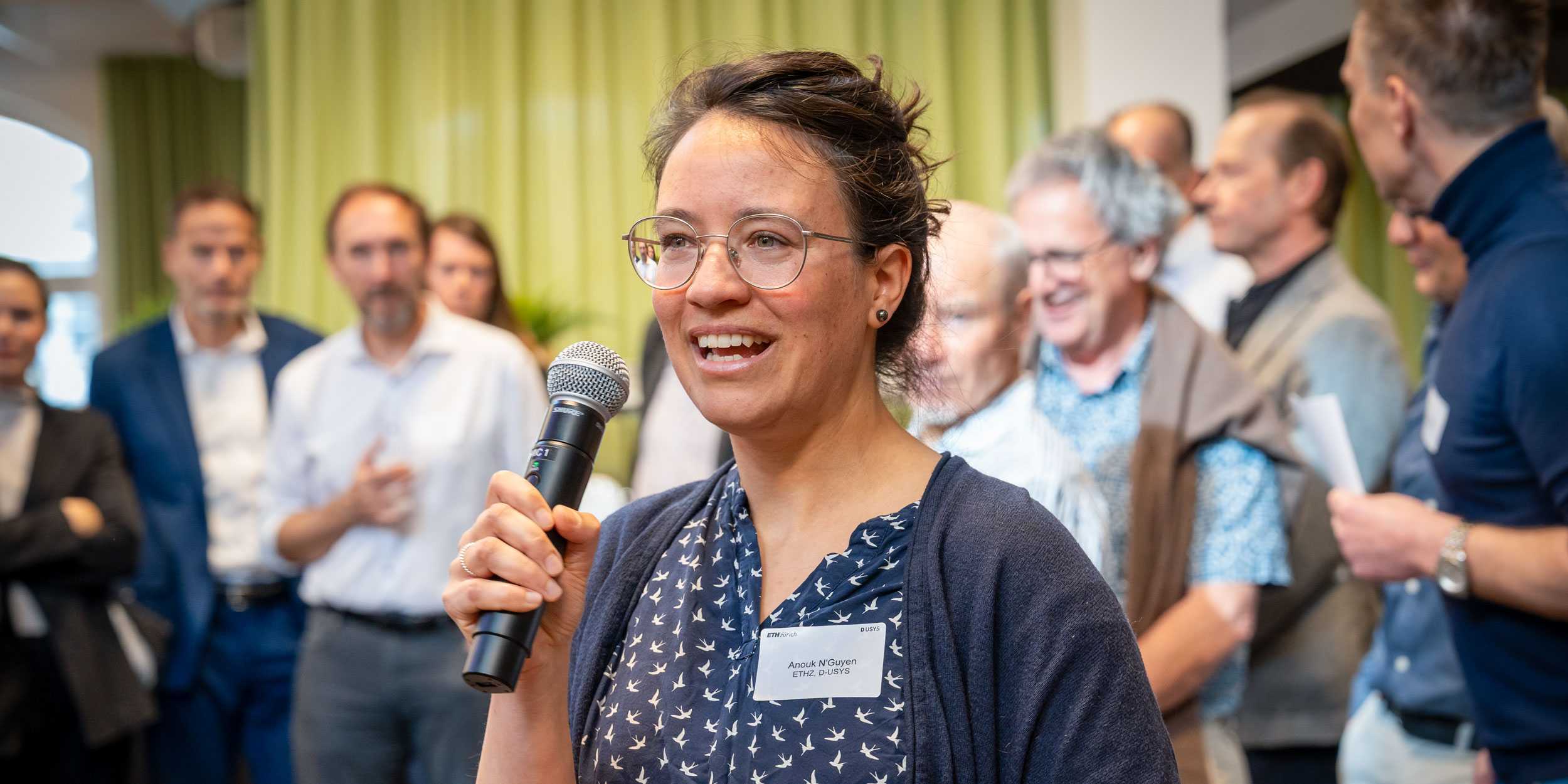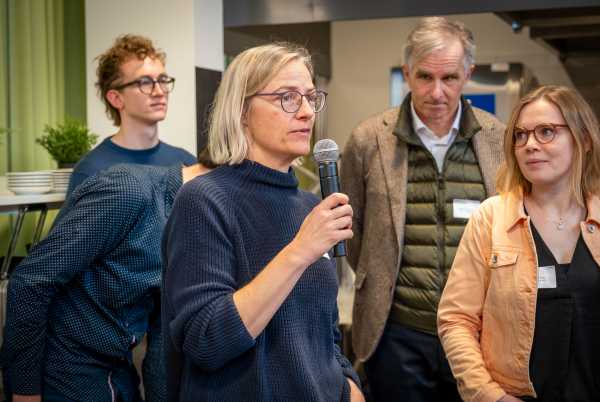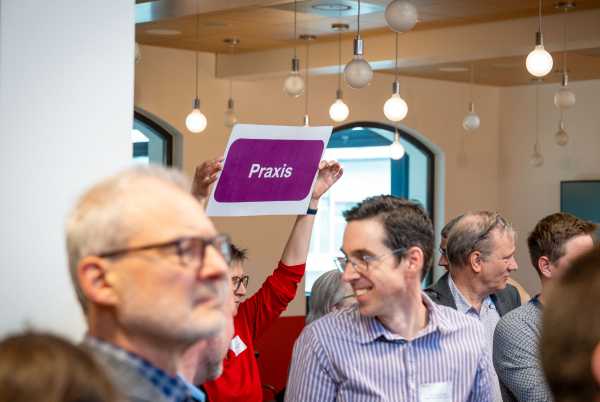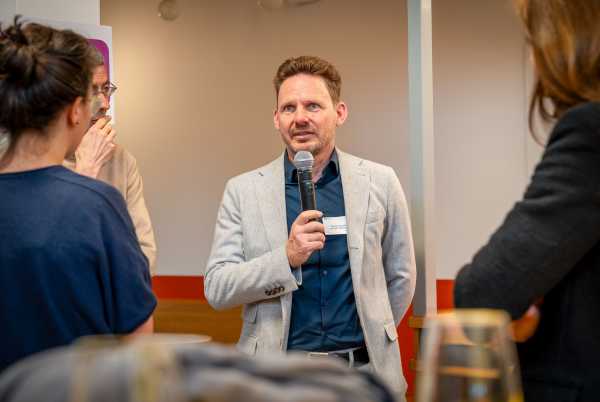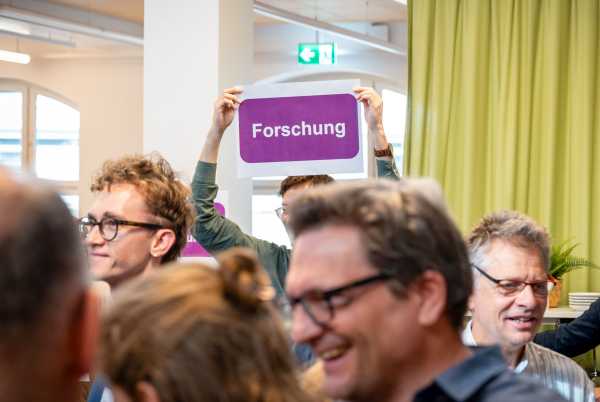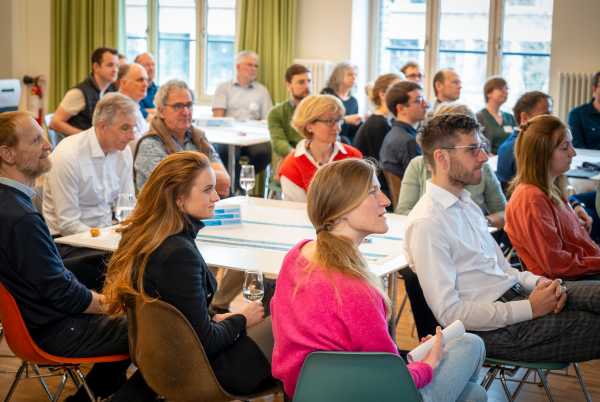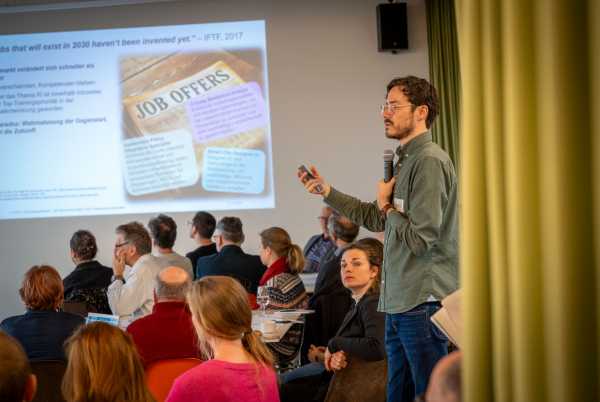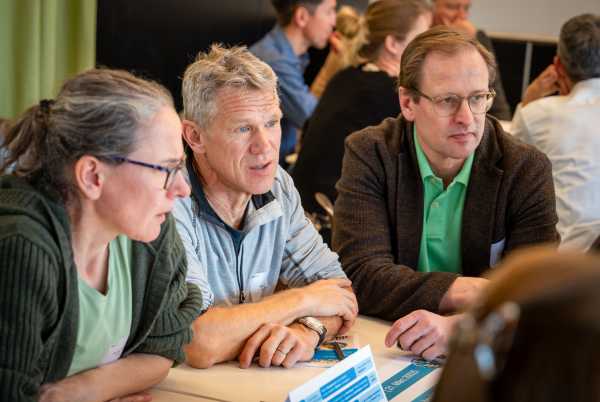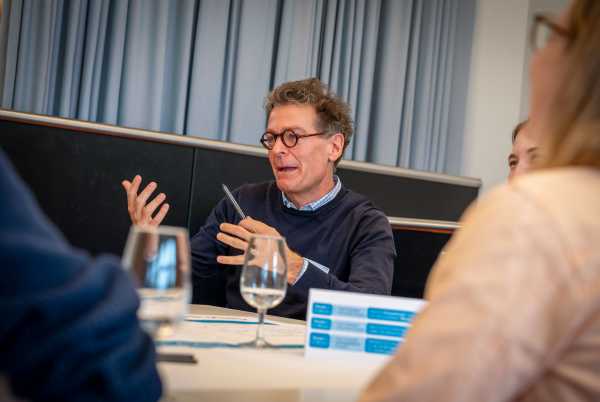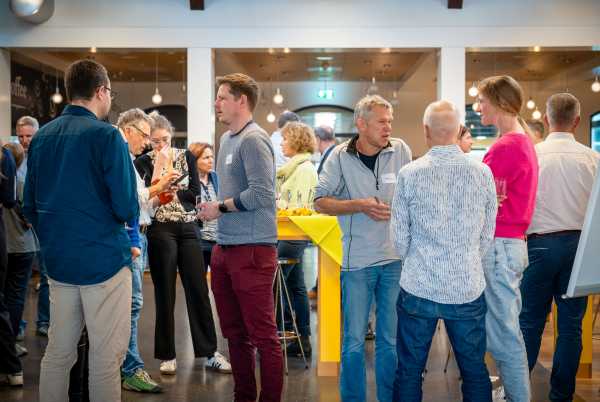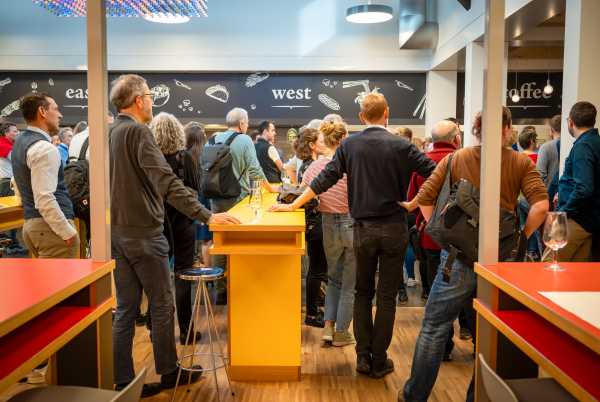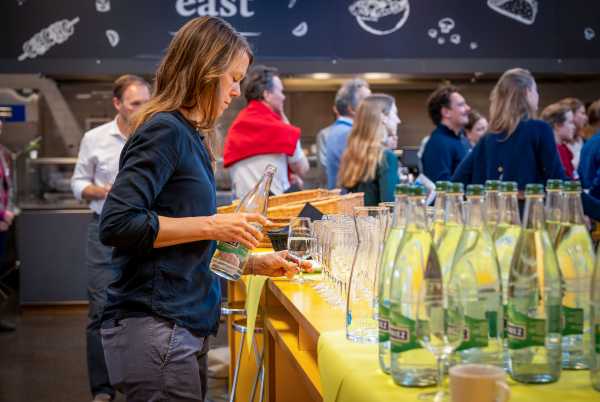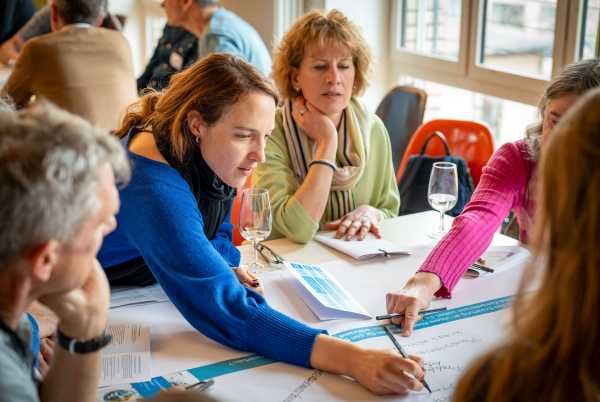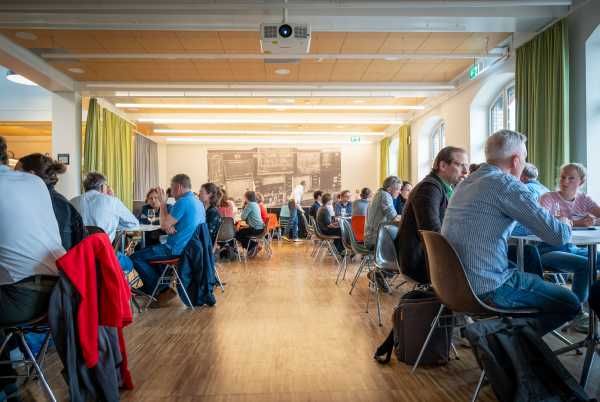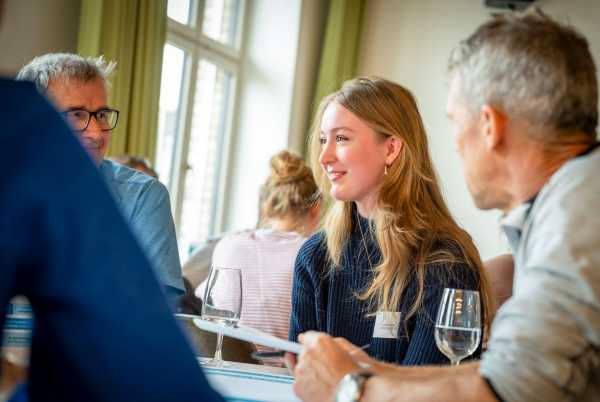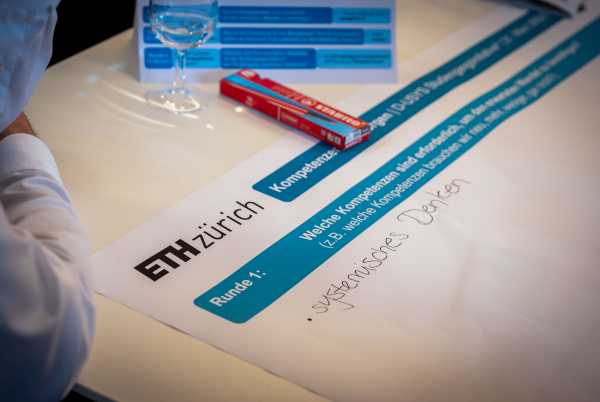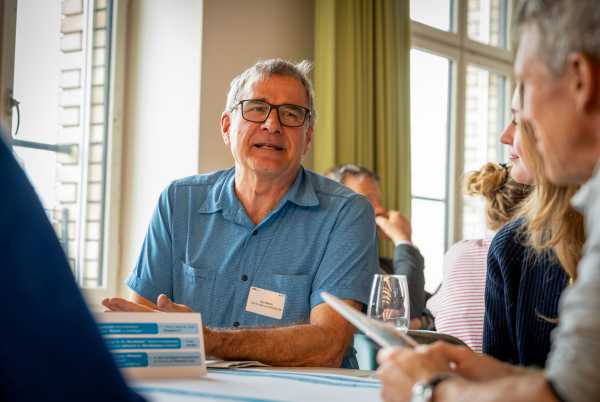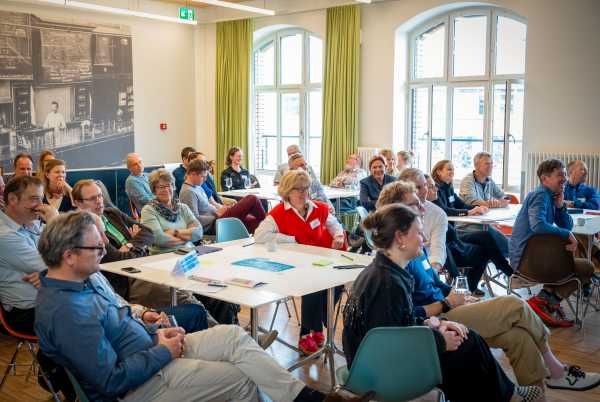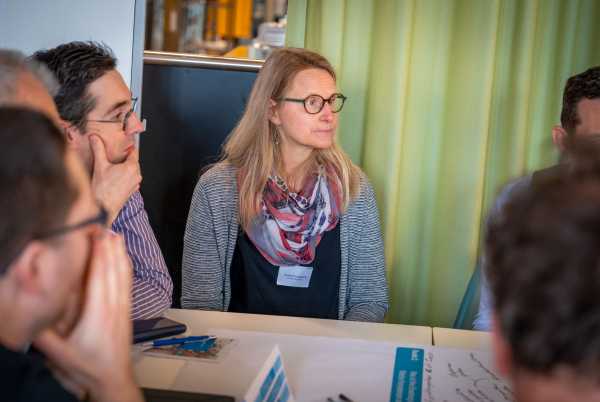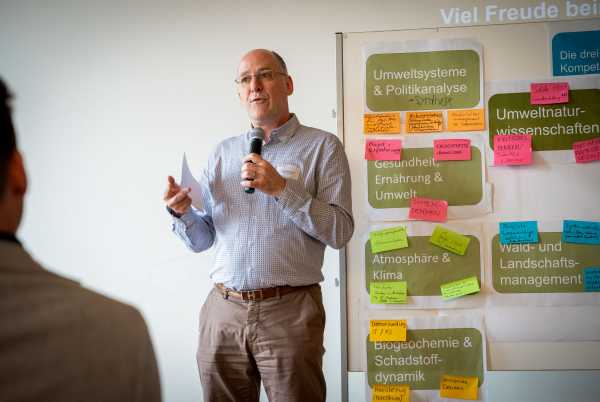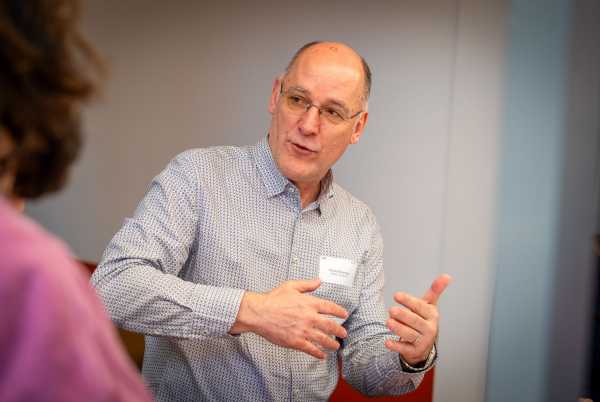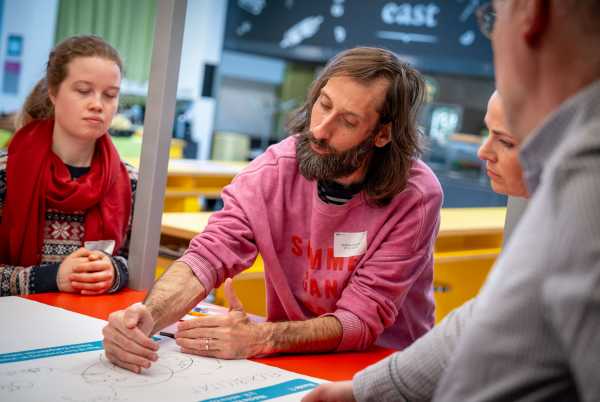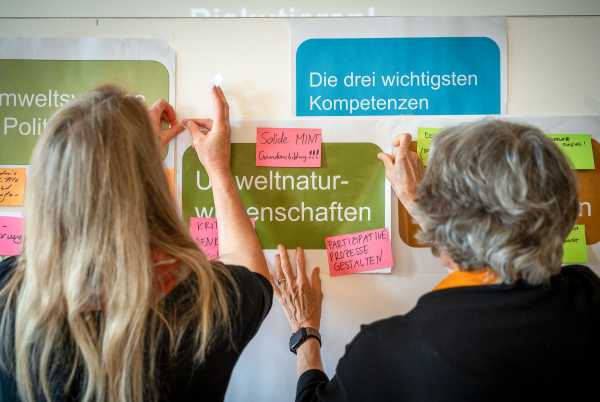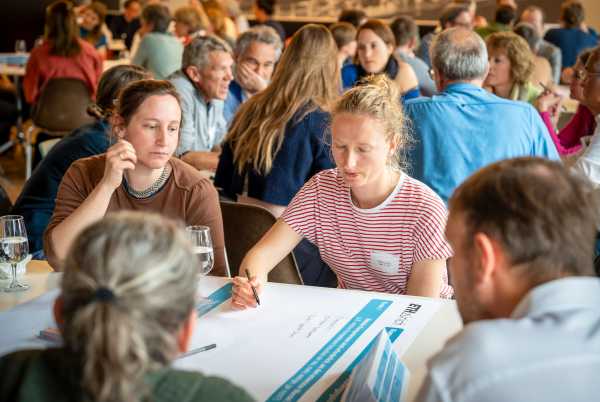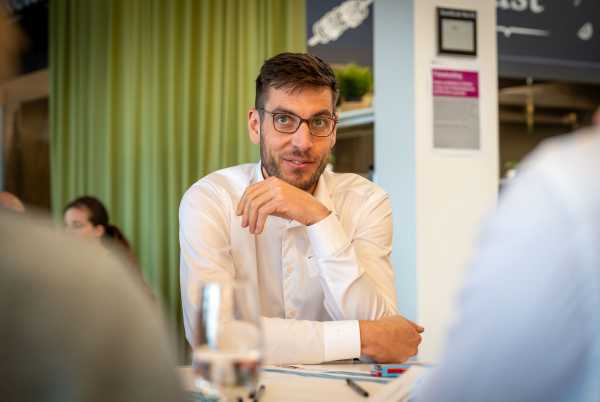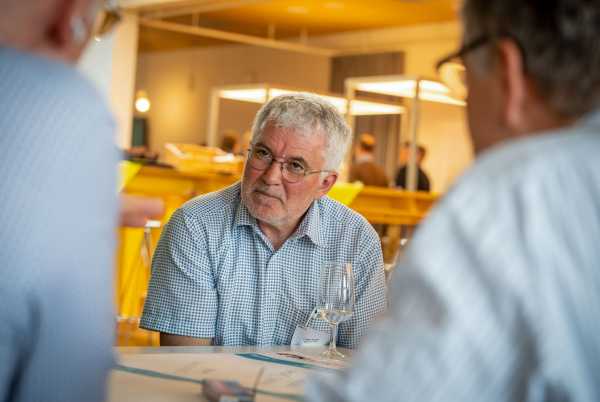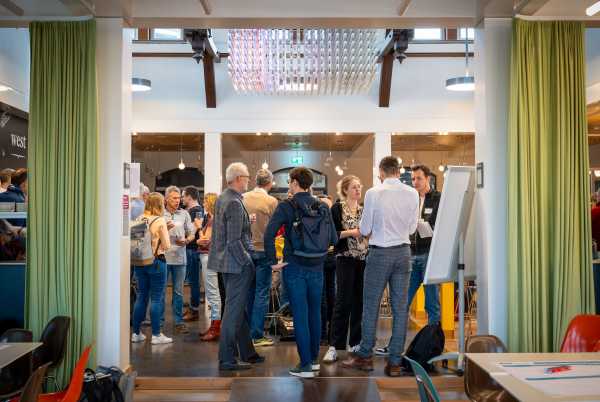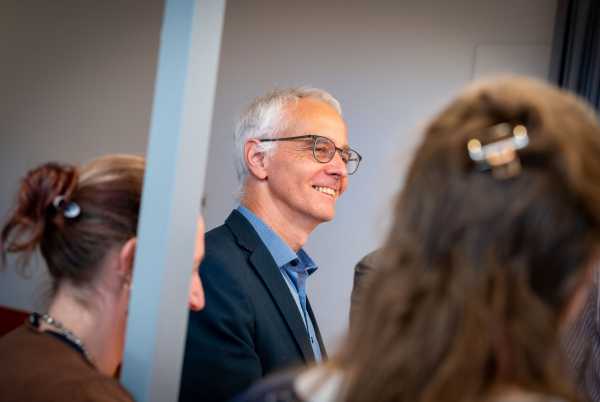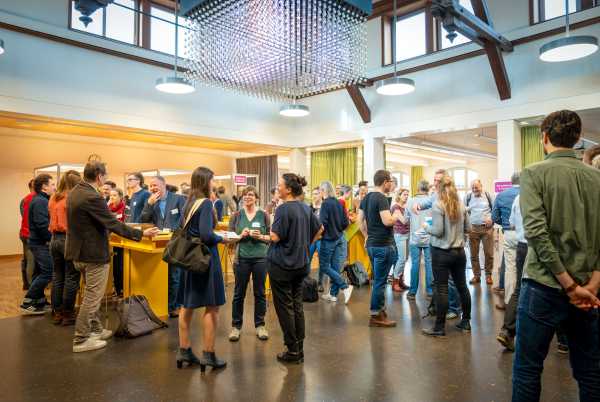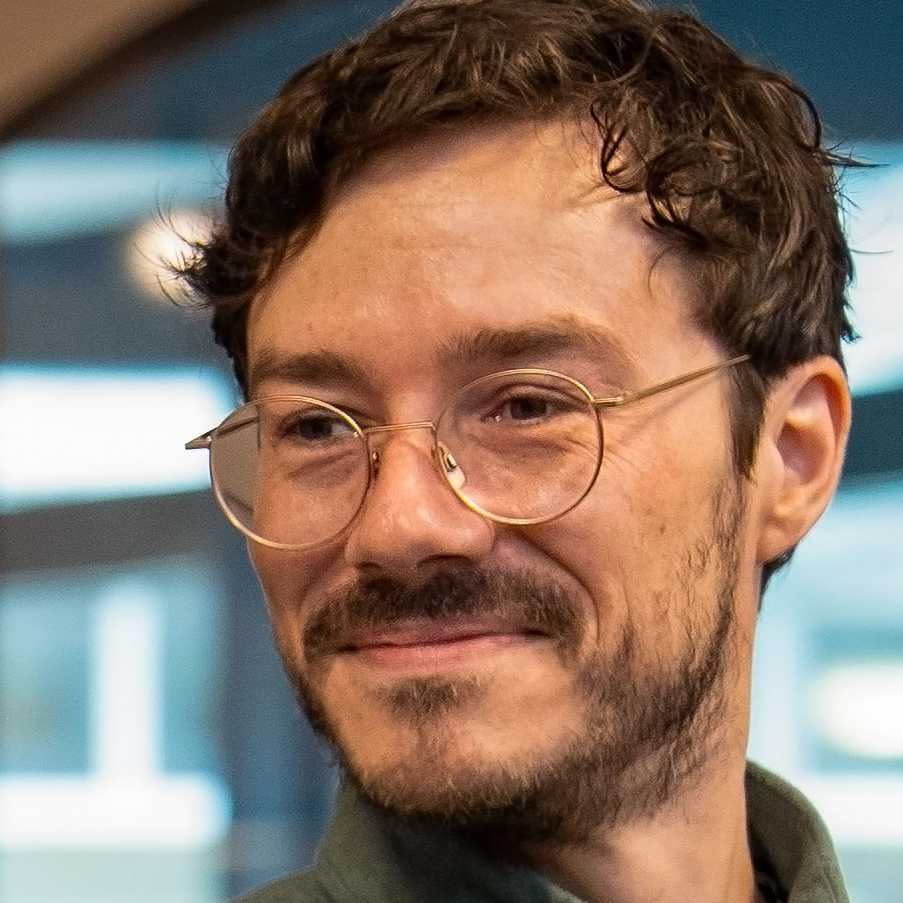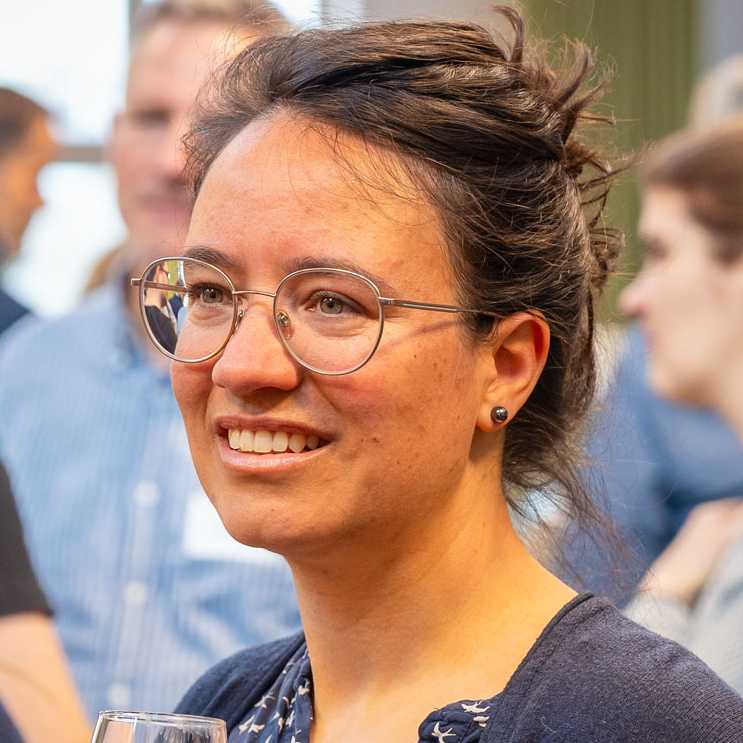A focus on skills
In three rounds of 20 minutes each, the ca. 80 participants discussed the following questions: What competencies are needed to manage the expected change? What are the expectations of our graduates? And what are the most important considerations for the Studiengangsinitiative² for each degree programme and specialisation? Lively discussions took place at the various tables. Some buzzwords were heard again and again: interdisciplinarity, systems thinking, computational competencies, practical relevance, social competencies.
STEM competencies as a key qualification
"To ensure that graduates can be deployed quickly, they need, above all, solid knowledge in the STEM area, i.e. in science, technology, engineering and mathematics," most participants agreed. "However, to get ahead in your career, you often need more than just specialist knowledge," explained Lukas Gasser from Econetta in one of the discussion groups. "Successful career starters can quickly adapt to new situations. They are personally committed and capable of thinking outside the box."
Practical relevance still in demand
The various discussion groups also agreed that the practical relevance of the studies should be given even more emphasis. "I have never experienced a project that failed because of technical solutions," emphasised Selina Derksen, team leader at the Swiss consulting and engineering company EBP. The bigger challenge is often to include all stakeholders in the project in such a way that they support the joint solution. This is precisely why case studies are so important during studying. "They create an important practical relevance and show that the theoretically perfect solutions are not always the ones that can be implemented."
How much methodology do you want?
What are graduates from university lacking the most? A wide range of views emerged in response to this question. "What I miss in graduates is methodological knowledge for stakeholder analyses," said Saskia Willemse of MeteoSchweiz, expressing her need. But, should this competence be taught more at ETH? "There is still something called freedom of research at ETH Zurich," responded Jean-Pierre Krause of Zurich Insurance Group. A degree at ETH Zurich should also offer freedom to students, without them always having to think about the practical benefits.
